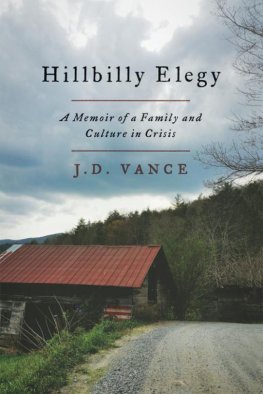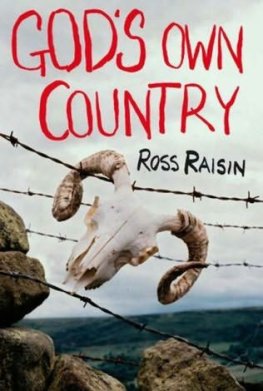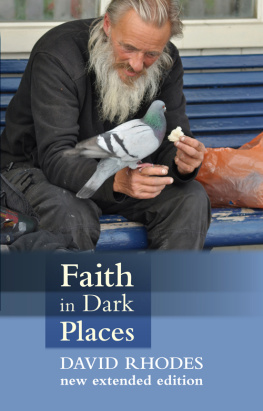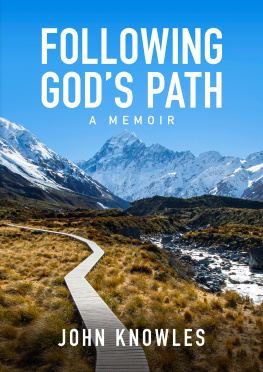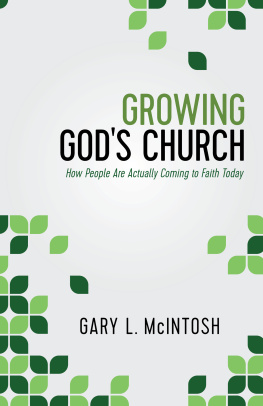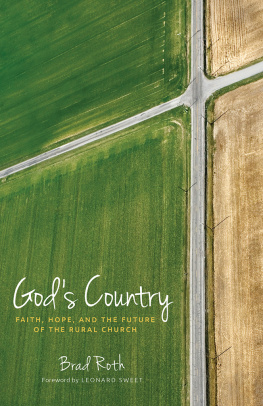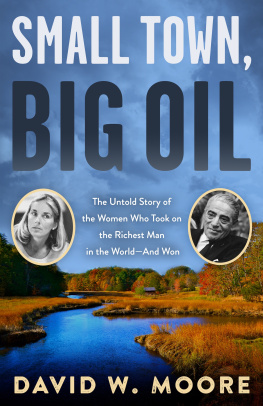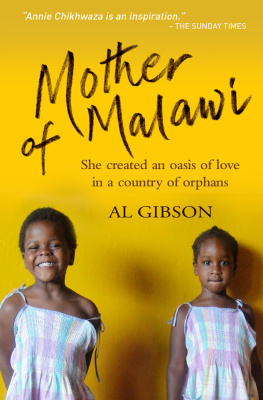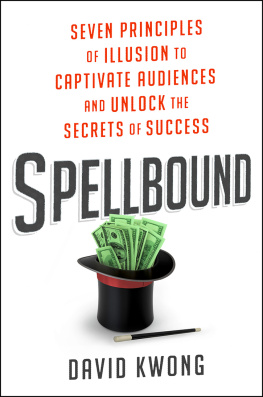SPELLBOUND
DAVID McKAIN
SPELLBOUND
GROWING UP IN GODS COUNTRY
Paperback edition, 2016
1988 by the University of Georgia Press
Athens, Georgia 30602
www.ugapress.org
All rights reserved
Designed by Louise M. Jones
Set in Trump Mediaeval
Typeset by The Composing Room of Michigan, Inc.
Printed and bound by Sheridan Books, Inc.
The paper in this book meets the guidelines for
permanence and durability of the Committee on
Production Guidelines for Book Longevity of the
Council on Library Resources.
Most University of Georgia Press titles are available from popular e-book vendors.
Printed in the United States of America
16 17 18 19 20 p 5 4 3 2 1
The Library of Congress has cataloged the hardcover edition of this book as follows:
McKain, David W.
Spellbound: growing up in Gods country.
x, 257 p. ; 23 cm.
1. McKain, David W.Childhood and youth.
2. Poets, American20th centuryBiography.
3. PennsylvaniaSocial life and customs. I. Title.
PS 3563. A 3133 Z 475 1988 811.54 [ B ] 88-4721
ISBN 0-8203-1048-4 (alk. paper)
Paperback ISBN 978-0-8203-4363-1
Winner of the
Associated Writing Programs Award
for Creative Nonfiction
For Walter and Elizabeth McKain
and in memory of Charles and Ida McKain
Troubles overcome are good to tell.
YIDDISH PROVERB
Acknowledgments
I would like to thank those friends, acquaintances, and strangers who helped me scout down sources, dig up forgotten photographs, and shift commas and who generally offered their support and encouragement. They are Philip Zaeder, Kelly Wise, Marion Vernon, Marta Troy, Jack Troy, Jay Taylor, Jane Stack, Dave Smith, Ted Sizer, Fred Shuey, Jean St. Pierre, Betty Robinson, Michael Robertson, Marty Robacker, Hilary Reeves, Harvey Phillips, Kevin OConnor, Jean Mitchell, Megan McKain, Joshua McKain, Gerald Long, David Knight, Nancy Holmes, Mary Hill, Donald Hall, Fehmi Hakim, Lee Gutkind, John Gould, Peter Gilbert, Margaret Gibson, Ruth Daily, Jim Daily, Jim Coleman, Joe Cleary, Malcolm Call, and Nelson Aldrich.
Both Phillips Academy at Andover and the University of Connecticut provided me with time off from teaching duties to write this book. From 1984 to 1987 I was fortunate to serve as writer-in-residence at Phillips Academy under a grant given to the school by Roger F. Murray, and for this I am most grateful.
SPELLBOUND

Part One
CHAPTER 1
Gods Country
T he shocks chatter over the frost heaves as I bounce west on Route 6 through north-central Pennsylvania, through state forest and game lands, through what people out there call Gods Country. A few logging roads spill out onto the highway, trailing mud and skidmarks on the blacktop. The trucks, like animals, leave their droppings, their tracks. I shift down behind a silver oil pumper crawling up a hill, an eighteen wheeler spewing diesel smoke into the mountain haze. Nearly noon, a mist hangs below the ridge, obscuring the crown. Bursts of sunshine slant through the foggold, faint, like gunsmoke. Then crack: a cloudburst releases every scent in the forest. The rain lasts for a minute, gentle, spattering, even while the sun is shining. The forest remains thick with oak and frostgrape, hemlock and redvine, thicker as the leaves glisten. But already the ferns gather dust, and spore and seed scatter inside a slant of yellow light. I still cant see the top of the ridge. The mountain seems to rise up forever, my spirits with it.
Potter County Recreation has painted tall blue letters the color of sky on a billboard near Pine Creek: Welcome to Gods Country. The sign welcomes barkpeelers, trap shooters, rattlesnake hunters, campers, deer hunters, hikers, fishermen, trappers, and people like me, heading back home. I lift my eyes to watch a hawk circle against the sky, riding an updraft.
During the heat of the summer the dogs whimper, the mosquitoes whine. Then the epithet Gods Country seems appropriate because no one else but God could live here. There is only stillness. The very shape and touch of the air change its clarity and heft. The air turns to steam.
You need gills just to breathe, my mother used to complain, collapsing on the couch and stirring the air with a fan from the First Baptist Church of Bradford. Tuckered out at the end of the day, she would ask, Is it Gods Country or has God forsaken it? Thats what Id like to know. Then quickly she would jump up off the couch and fan away her words as well as the heat. Mercy, she would laugh, I dont mean that.
Amid the loonlike cries of the bedridden, Beth and Miss Doubleday traipse up and down the long corridor of the Mystic Manor Convalescent Home in rumpled nightclothes, my mother between them. Arm in arm, the three of them glide for a few steps, then jangle to a stop in exaggerated unison. Oh my, yes! Beth slurs emphatically. Well, Miss Doubleday responds, I do hope so. For both of you. I sincerely hope so. She clasps her long thin fingers in front of her chin and speaks in perfect Oxonian English. My mother nods encouragingly. Both of you have what it takes to bring us back! Beth, heavily drugged, begins to teeter but is saved from falling by my mothers arm around her waist. They steady themselves, then lose their balance, laughing at their own bewilderment.
New friends, they wear each others clothes and support one another. A handsome woman, Beth is in her late sixties, about my mothers age. She wears scuffed brown Oxfords and a pleated Pendleton skirt under her nightgown. She has the husky voice of a woman who once enjoyed whiskey sours and cigarettes. She might have sailed at one time, played golf or tennis. Tall and graceful, Miss Doubleday must be close to eighty. She holds the hem of her housecoat as though crossing a stage, her arm extended and bent slightly at the elbow, her wrist upturned. She is beautiful, with the bones of a sparrow. My mother looks like a retired schoolmarm from the Allegheny Mountains. Without a permanent, her hair is combed straight back over her ears like an Indian, her face drawn and haggard like that of an old woman staring vacantly into a WPA cameraAppalachian Still Life: 1937. There is a sadness and strength in her face lacking in the other women.
The CAT scans show a sinking of the cerebral cortex, a kind of saddleback in the middle of her brain. I call the declivity on the X-rays the valley of her life. She might enjoy that; the image puts her up on a ridgetop surveying Gods Country. When I look at her, I think of myself. The odds are one out of five that one day Ill lose my mind as well. The odds are slightly better in Russian roulette: one out of six. Its nearly a family tradition. Wearing only a housecoat, my mothers mother waltzed downtown in the moonlight to gather flowers just as my mother did. I remember my mother crying when, at three in the morning, the police brought Grandma backtears for herself. She shook her head. In a few years Im going to be just like Grandma. You mark my words. Her words are marked, but most everything else she ever said or knew is filed away in the snarled circuitry of her brain, deep in the base of the nucleus of what doctors call the neurofibrillary tangle.


